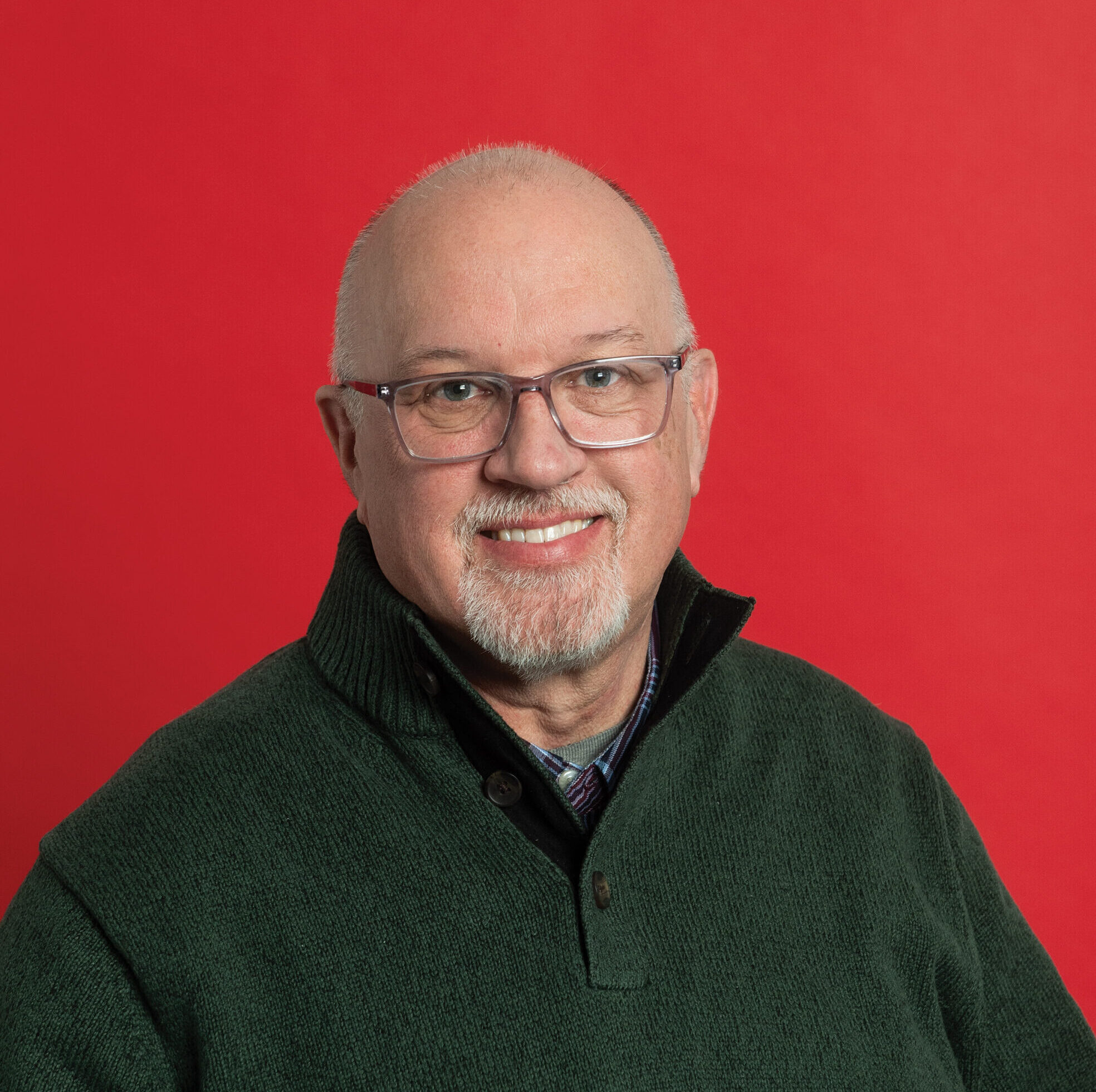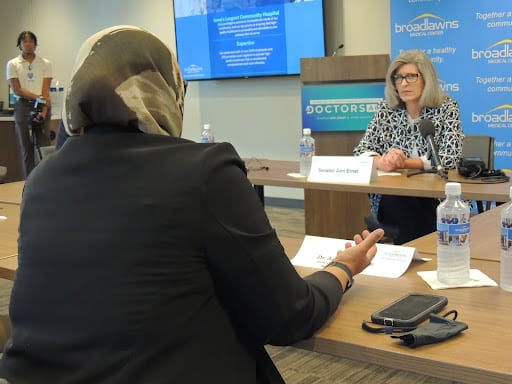Ernst says Doctors Act can help close doctors shortage

Michael Crumb Aug 14, 2023 | 3:34 pm
4 min read time
1,065 wordsAll Latest News, Government Policy and Law, Health and Wellness
U.S. Sens. Joni Ernst and Amy Klobuchar will introduce a bill that will allow states to tap into unused waivers under the Conrad 30 program to close the gap for physicians in states where there are shortages, the Iowa Republican said Friday.
Ernst met with doctors during a roundtable conversation at Broadlawns Medical Center in Des Moines.
The Conrad 30 program grants waivers to states for international students who study medicine in the U.S. Those students who have received J-1 visas to study in the U.S. are required to return to their home country following graduation. Under Conrad 30, each state is granted a waiver for 30 students, allowing those students to stay in the U.S. in exchange for three years of service in underserved communities.
Ernst said as many as 400 of the waivers were not used in 2022. The bill she and Klobuchar, D-Minn., will introduce, named the Doctors Act, would allow states that have used their 30 waivers to tap into those unused slots to meet demand where physician shortages exist. Iowa is one of the states that uses all of its allocated spots, Ernst said.
She said that while she’s a big supporter of telehealth for rural areas, “there has to be specialists on the other end of that call or Zoom meeting.”
Ernst was joined in the roundtable discussion by Dr. Anthony Coleman, president and CEO of Broadlawns; Dr. Aneesa Afroze, infectious disease specialist at MercyOne; Dr. Edward Rojas, a cardiologist with UnityPoint; Dr. Trish Newland, a family medicine physician at UnityPoint; Dr. Souleymane Diallo, a podiatry fellow at Broadlawns; and Dr. Jason Kruse, an internal medicine physician at Broadlawns.
During the conversation, Afroze said the Doctors Act will help medical graduates from other countries enter the workforce without interruption. That is especially important in specialty care, such as OB-GYN, gastroenterology, cardiology and infectious disease, she said.
“We really need this to fill this void and have Iowans with good access to health care,” she said. “In my mind, primary care we can try to cover with nurse practitioners and physician assistants, but … we need good [specialty care] in Iowa. Specialty care is going to be a big problem moving forward because it’s anticipated many thousands of people are going to leave health care in the next 10 years.”
Rojas said he went through the Conrad 30 process after the political environment in his home country of Venezuela worsened.
“I think it meets the needs of the population and the patients and also the needs of the highly skilled immigrants,” he said.
Rojas said Iowa needs physicians, and there is a need for more immigrants to move to the state to fill jobs.
“This program meets those two problems together and provides solutions for those problems,” he said.
Although the program can be “convoluted,” Rojas said, “it’s great because it’s helping people in Iowa by providing highly specialized care here. It’s helping highly skilled immigrants to start a life in the USA and Iowa.”

Coleman said another specialty that will be needed in Iowa is geriatrics, and the Doctors Act could help fill that need.
“Being a teaching hospital, [doctors] train in rural areas and practice in rural areas,” he said. “When you talk about OB, that’s something that’s top of mind, but I also think about geriatrics with the aging population, not only in Des Moines but Iowa and really the Midwest.”
Coleman said he met a doctor at a recent geriatrics conference. The doctor works in Florida, and the Doctors Act would “pave the way for her to come to Iowa.”
“[She’s] doing an internal medicine residency, and she’s interested in geriatrics … and she’s not opposed to coming to Iowa. She’s actually from the Islands, so this bill would be right up her alley,” he said.
Ernst said under the Conrad 30 program, 10 of every 30 slots are flexible and can target any specialty.
“We could see a number of those slots be reallocated to other states that really need them, and we can see in Iowa where we have vacancies for physicians in so many of our areas, whether they are generalists or specialists, we need physicians and this is one way to close up that gap,” she said.

How those unused slots are reallocated needs to be determined, Ernst said.
“It is extremely competitive to get the right physician in the right health care system,” she said.
Ernst said she doesn’t believe Iowa’s new law restricting abortion after six weeks of pregnancy will deter obstetricians from coming to Iowa.
“I don’t know that will be a consideration; if anything, I think it will encourage people to come to Iowa to deliver babies,” she said. “I’m hopeful. It shouldn’t be controversial as we’re talking about Conrad 30. Most certainly we just want to encourage physicians to come to the state of Iowa.
Ernst said she and Klobuchar will introduce the Doctors Act after Congress returns from its recess in early September.
If approved, it would be another step taken to try to attract physicians to Iowa.
During the 2023 session, the Iowa Legislature approved a bill that sets limits on liability for doctors and hospitals from medical malpractice lawsuits. It sets a cap of $1 million for clinics and doctors and $2 million for hospitals. Business leaders said the bill, signed by Gov. Kim Reynolds in February, will help Iowa attract and retain health care professionals.
VIDEO: Ernst says new law could help address doctor shortages
Sen. Joni Ernst discusses the Doctors Act, which she is co-sponsoring with Sen. Amy Klobuchar, D-Minn., during a roundtable discussion with Central Iowa doctors at Broadlawns Medical Center on Friday. Ernst said the bill, which she plans to introduce next month, could help address the doctor shortages across Iowa and other states.

Michael Crumb
Michael Crumb is a senior staff writer at Business Record. He covers real estate and development and transportation.










